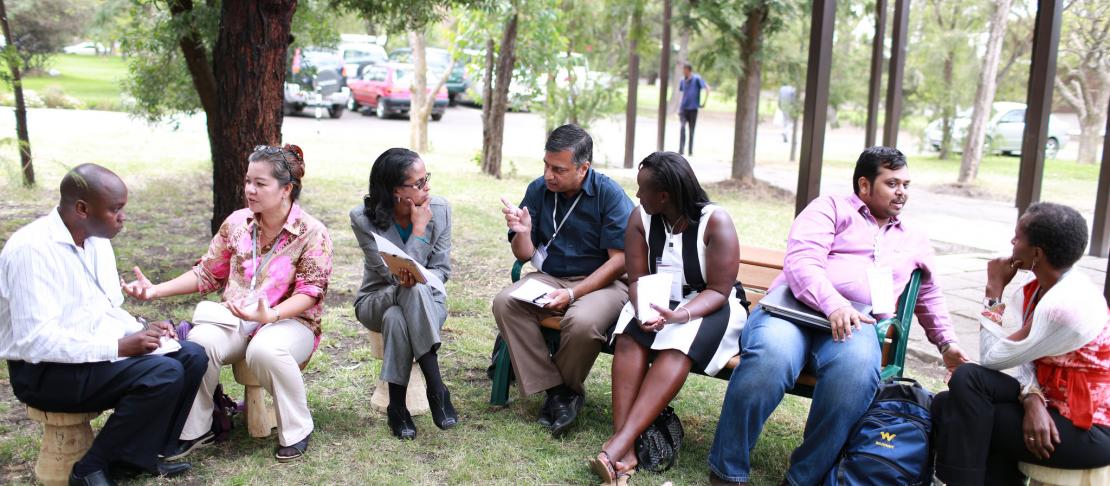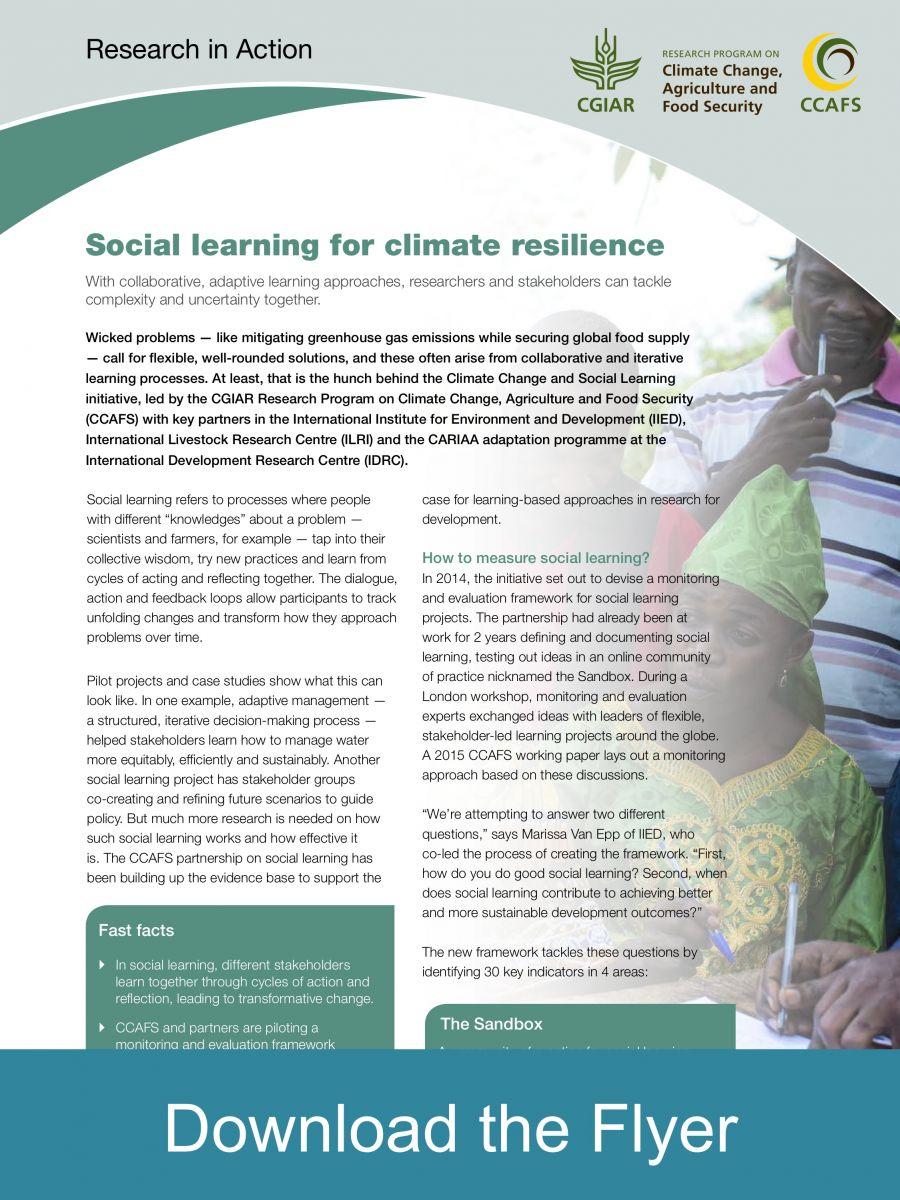Climate Change and Social Learning Initiative

Introduction
The Climate Change and Social Learning (CCSL) Initiative was launched by CCAFS in early 2012 to look at ways that learning-oriented approaches can improve the impact of research for development programs. A community of practice was established as a key mechanism to support social learning. The CCSL initiative aimed to influence climate change and food security actors to develop collective and transformative reflection processes in their operations, so as to increase effectiveness and adaptation capacity. Rigorous evidence of the added value for research for development programs had been weak. In 2014, the CCSL partners released a social learning monitoring and evaluation framework that enables a systematic collection and analysis of data on social learning-oriented approaches across a range of projects and programs at different scales.
The CCSL initiative used the framework to document and analyse projects that are incorporating social learning approaches in their work, while continued to gather an evidence-base for the value of these approaches. Recognizing the need for institutional change, dialogues of institutional learning within international organizations took place to enhance the achievement of development outcomes through agricultural research within the context of climate change.
An evidence base of the value of social learning approaches to enhance the development outcomes of agricultural research was established. This was supported by an active community of practice that acted as a peer assist mechanism to support learning.
In 2016, there was some mainstreaming of CCSL elements in some flagship projects, and some evidence was assembled as to the effectiveness of social learning in a development context.
Outputs
- CCAFS blog: How can we evaluate social learning?
- Working paper: Solving ‘wicked’ problems: can social learning catalyse adaptive responses to climate change? And related compendium of case studies
- Working paper: Addressing environmental degradation and rural poverty through climate change adaptation: An evaluation of social learning in drought-affected districts of Southern India
- Learning brief: Applying social learning where ‘business-as-usual’ solutions no longer work for complex problems and programs
Partners
The Climate Change and Social Learning initiative was led by the CGIAR Research Program on Climate Change, Agriculture and Food Security (CCAFS) together with the International Institute for Environment and Development (IIED) and the International Livestock Research Institute (ILRI), and the Collaborative Adaptation Research Initiative in Africa and Asia (CARIAA).
Gender
Gender considerations were at the forefront of at least two of the six case studies undertaken to test the monitoring and evaluation (M&E) framework developed for CCSL activities.
Further information
For further information, please contact Philip Thornton (CCAFS) at p.thornton@cgiar.org and Liz Carlile (IIED) at liz.carlile@iied.org.
